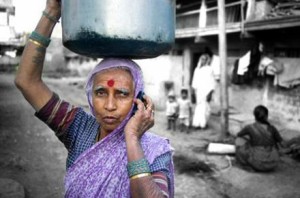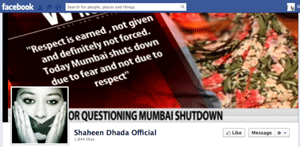 Since the Millennium, social media has grown from teenage fad into an essential communication platform at such unprecedented speed that it’s left the development of privacy laws and regulations in its wake.
Since the Millennium, social media has grown from teenage fad into an essential communication platform at such unprecedented speed that it’s left the development of privacy laws and regulations in its wake.
A new report by India-based analysts Avendus puts this into context on a global perspective.
There are now over 2.4 billion internet users in the world of which 1.5 billion access the internet through their mobile devices either as a primary or a supplementary device; the penetration of smartphones are expected to grow at a CAGR of 20% to reach 2.2 billion by 2015; tablet sales are expected to grow at a CAGR of 33% from 118 million units in 2012 to 369 million units by 2016; Facebook has in excess of 1 billion monthly active users of which over 819 million access it through a mobile device, with 41% of Facebook’s revenues coming from mobile in Q2 2013; and Google generated around USD1 billion from USD13.9 billion revenues from mobile in Q1 2013.
 These seismic changes in social media are creating a fresh set of challenges for regulators in India where smartphone penetration now stands at 36m units (March 2013).
These seismic changes in social media are creating a fresh set of challenges for regulators in India where smartphone penetration now stands at 36m units (March 2013).
India’s Information and Broadcasting Minister Manish Tewari remarked: “Never before in the history of mankind has there been so much power in the hands of so many people and located at so many places. There’s more digital content churned out every two days than that created from the beginning of civilization.”
What’s clear is that India must learn the lessons of regulators in other territories such as the European Union (EU) in order to find solutions to its own particular challenges as outlined here.
For example, across Europe the forthcoming Data Protection Regulation will update and harmonize EU laws that regulate the use of digital and mobile technologies across all 28 EU Member States, expected to be implemented next year.
The European Parliament in Brussels wants to ensure that laws on data protection keep pace with the advances of the internet and other digital media and to allay fears that individuals aren’t able to sufficiently protect their personal data from preying eyes.
Indian authorities share these same concerns although India currently lacks a coherent legal framework for the protection of privacy rights, freedom of expression as well as protection of the national security interest that balances these rights and obligations in a fair and reasonable way. Part of the issue is the development of such a legal framework around social media and particularly mobile internet which has been ad hoc at best.
The turning point came in the wake of the Mumbai terrorist attacks in 2008 which left 26 dead and 130 people injured.
The Indian Government came under intense pressure to respond to a situation where social media and mobile networks had been extensively used by the terrorists to carry out their atrocities on an unsuspecting public.
 The Information Technology Act 2000 (IT Act) was rapidly amended to permit the authorities to block websites, monitor and intercept data, access sensitive personal information and provide sanctions against intermediaries for hosting user-generated content that was deemed to be in breach of the law.
The Information Technology Act 2000 (IT Act) was rapidly amended to permit the authorities to block websites, monitor and intercept data, access sensitive personal information and provide sanctions against intermediaries for hosting user-generated content that was deemed to be in breach of the law.
In addition, Internet Service Providers (ISPs) could be compelled to provide technical assistance to the authorities that included blocking public access to any information through any computer resource or risk severe sanctions for non-compliance with such requests.
More controversially, legislators introduced draconian powers under Section 66A of the IT Act 2000 making it an offence to send any information which was known to be false and was done to cause ‘annoyance, inconvenience, enmity, hatred or ill-will’.
Last year, legal action was taken against 11 internet users for posting “Likes” on Facebook posts and in one instance two young women were arrested for posting a Facebook comment questioning the bandh in Mumbai following the death of Bal Thackeray, the leader of the far-right political party Shiv Sena.
Legal commentators and human rights activists have been quick to raise concerns why a measure intended to tackle the issue of spamming from a computer or mobile device had been transformed into an instrument of Government censorship as well as a restraint on the freedom of speech.
And further questions were raised as to whether the Indian Government had acted beyond its powers which called into question the rule of law.
As a result of the furore that followed, the Indian Supreme Court ruled that the “wording of Section 66A is not satisfactory. It is made very wide and can apply to all kinds of comments.”
The Indian Government later issued a new guidance note that all senior police officers must look very carefully at the facts of individual cases in order to assess whether criminal charges under the IT Act 2000 should be brought in the public interest.
The future outlook for the development of social media and the law in India isn’t that positive given the history of recent events. Analysis contained in Freedom on the Net 2013, an independent report by Freedom House paints a gloomy picture.
Researchers found that internet freedom in India had deteriorated to unacceptably low levels because of the use of broad surveillance, new laws controlling web content and growing arrests of social-media users.
Last year India topped the list of countries with the most invasive jurisdiction where deliberate interruptions of mobile and internet services in order to quash civil unrest was commonplace and beyond the rule of law.
Other measures used by the authorities included excessive blocks on content during rioting in Northeastern States as well as an increase in criminal prosecutions against ordinary users for posts on social-media sites.
In conclusion, the future development of social media law and regulation in India lies in the legislators getting the balance of interests’ right – the need to protect national security balanced against the rights of ordinary people to exercise freedom of speech in a way that doesn’t impinge or threaten national security or the lawful rights of others.
This has been jointly written with Professor Rajesh Babu and Professor Suren Sista of the Indian Institute of Management Calcutta
Legal update: January 2014
Ardi Kolah LLM, Prof Rajesh Babu and Prof Suren Sista are working on a new book for the Guru in a Bottle Series – Essential Sales & Marketing Laws in India – to be published in 2015.
For more information about this sales and marketing book, contact Ardi Kolah via this website.














Recent Comments